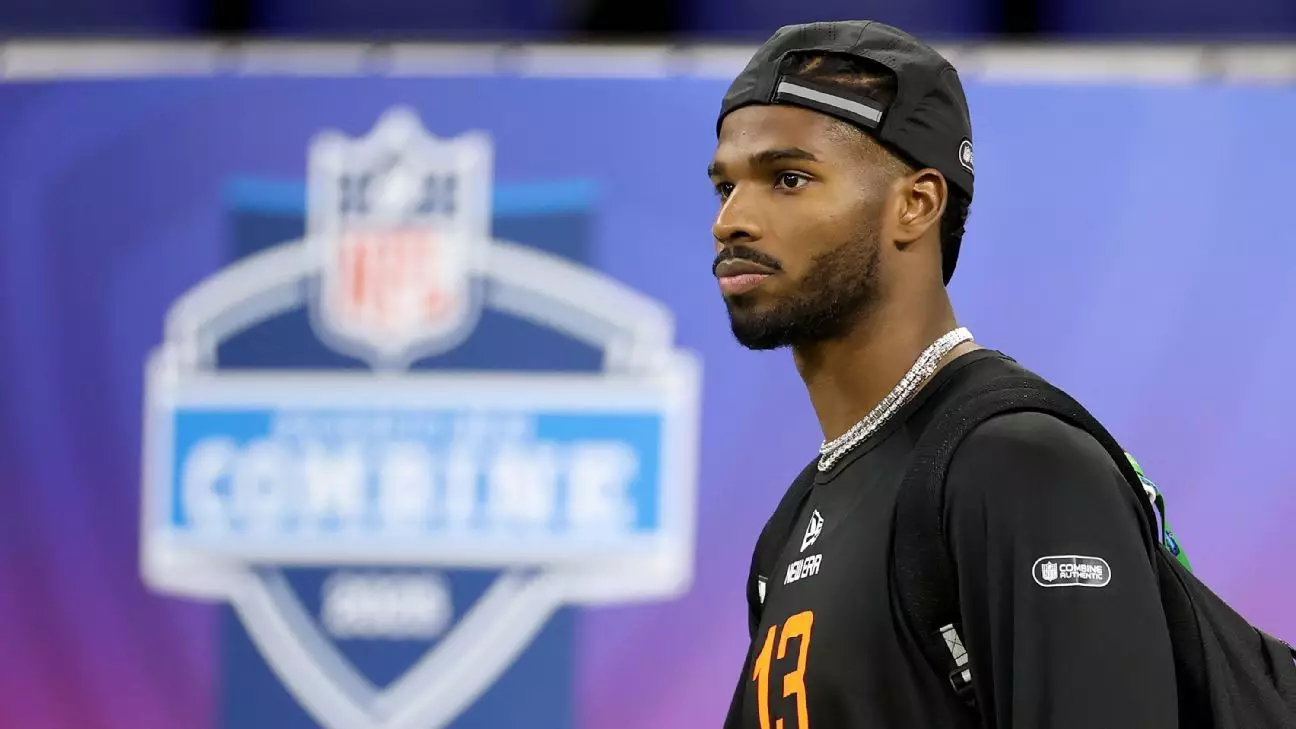In recent events surrounding the NFL draft, a prank initiated by Jax Ulbrich, son of Atlanta Falcons defensive coordinator Jeff Ulbrich, has sparked significant controversy. The prank call made to Shedeur Sanders—who was eagerly awaiting to hear his name called as an NFL draft pick—highlights not just a lapse in judgment but also raises critical questions about privacy and accountability in this digital age. The incident involved Jax misappropriating Sanders’ private phone number, which he accessed from his father’s open iPad. While prank calls can often be humorous, this particular act landed in a gray area of youthful indiscretion that, unfortunately, undermined a pivotal moment in Sanders’ life.
A Closer Look at the Fallout
The implications of this incident extend beyond just Jax Ulbrich’s momentary lapse in judgment. When Jax’s prank call was made public, it turned what should have been a jubilant occasion for Sanders—a life-changing career milestone—into a source of embarrassment and confusion. As he received the call from someone impersonating New Orleans Saints general manager Mickey Loomis, one can imagine the mixed emotions swirling in his mind—excitement dashed with bewilderment. This scenario not only affects the individuals directly involved but also reflects poorly on the culture of the NFL, stirring concerns about respect for players and their experiences.
Upon apologizing via Instagram, Jax Ulbrich expressed regret, calling his actions “completely inexcusable, embarrassing, and shameful.” Such honest remorse is commendable, yet it raises the question: why did it take an incident of this magnitude for the acknowledgment of the potential consequences of such pranks? While he may have recognized his error, the ease with which he accessed a private number speaks volumes about a lack of procedural safeguards. Jeff Ulbrich, although not directly responsible for his son’s actions, must also reckon with a lapse in the vigilance expected from a parent in a position of authority.
Industry Reactions and Their Implications
Responses from the Atlanta Falcons organization illustrate a larger trend within the sports industry of focusing on damage control rather than addressing the root problems. Despite having acknowledged the incident and promising to review their protocols to prevent future breaches, it seems to lack a sense of accountability. The Falcons stated, “The Atlanta Falcons do not condone this behavior,” but mere condemnation without a comprehensive policy change feels insufficient. Shouldn’t there be stricter guidelines on the access and security of personal information, particularly within high-stakes environments like the NFL?
Shedeur Sanders, for his part, displayed admirable composure, stating that he didn’t allow the prank to impact him significantly. This resilience could be seen as a testament to his character, but it also subtly points to an unfortunate normalization of toxicity in some sports environments where pranks can overshadow achievements. While labeling the prank as “childish,” he acknowledged that such behaviors exist among players and young adults alike. This normalization reflects a larger issue of maturity and respect within competitive spheres that require examination.
The Ripple Effect on Future Generations
Viewing this incident through a broader lens reveals the potential long-term consequences for upcoming athletes who look up to current players and executives. If acts of thoughtlessness become standard expectations, we create a culture that not only condones but trivializes the respect owed to one’s peers and competitors. It speaks volumes that other athletes like Tyler Warren and Chase Lundt also reported receiving prank calls during the draft. What message does this send about the nature of camaraderie in sports? It seems we may be navigating a dangerous path where the thrill of a joke can jeopardize an athlete’s emotional well-being.
In the world of professional sports, where every decision and action is magnified, stakeholders must prioritize responsibility over mindless antics. Only through collective acknowledgment and strong institutional reforms can we hope to preserve the sanctity of the journeys our athletes undertake. The Shedeur Sanders prank incident serves as a cautionary tale—a powerful reminder that the line between humor and insensitivity can often blur, with the potential for damaging consequences. We must strive for a culture that prioritizes respect, not only fostering good-natured sportsmanship but also nurturing environments where young talents can thrive unencumbered by unnecessary distractions.

